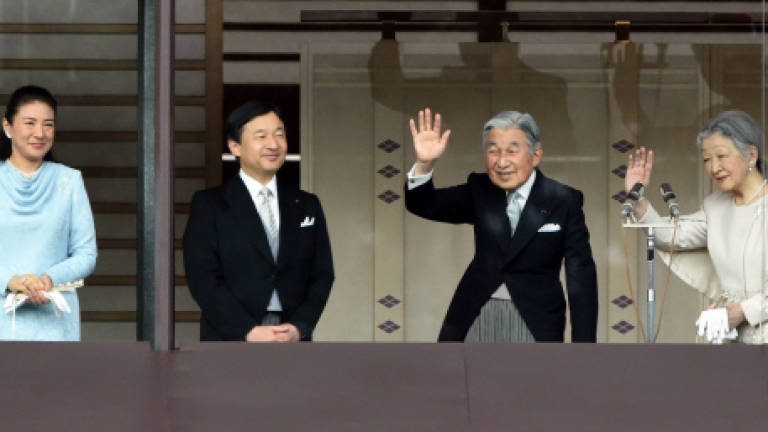Japan cabinet approves bill allowing emperor's abdication

TOKYO: The Japanese government on Friday approved a one-off bill allowing ageing Emperor Akihito to step down from the Chrysanthemum Throne, in the first such abdication in two centuries.
The bill will now be sent to parliament for debate and likely swift final approval, Chief Cabinet Secretary Yoshihide Suga said after Prime Minister Shinzo Abe's cabinet signed off on the legislation.
Abdication must take place within three years of the current bill becoming law.
Earlier this year reports suggested that 83-year-old Akihito could step down at the end of December 2018 and be replaced by Crown Prince Naruhito on Jan 1, 2019.
Reports of his desire to retire surprised Japan when they emerged last July.
In August he publicly cited age and declining health, which was interpreted as his wish to hand the crown to his eldest son.
But current Japanese law has no provision for abdication, thus requiring politicians to craft legislation to make it possible.
The status of the emperor is highly sensitive in Japan given its 20th century history of war waged in the name of Akihito's father Hirohito, who died in 1989.
While abdications are far from unknown in Japanese history, the last one was in 1817.
The leading opposition Democratic Party has argued the law should be permanently changed to ensure stable future successions, but is reportedly on side with the current one-off bill after talks with the ruling bloc.
Some scholars and politicians have argued that changing the law to allow any emperor to abdicate would risk Japan's monarchs becoming subject to political manipulation.
The issue has also highlighted concerns over a potential succession crisis in one of the world's oldest monarchies.
A government panel in April issued a warning over the dwindling number of male heirs.
Only men are allowed to become emperor under current law, though Japan has had empresses in past centuries.
Female members of the imperial family must give up their royal status when marrying a commoner, underscored by news this week that one of Akihito's granddaughters plans to marry her college sweetheart.
When Naruhito, who has a daughter but no sons, ascends the throne, his younger brother Akishino will be next in line, followed by Hisahito, Akishino's 10-year-old son.
But after that there are no more eligible males, meaning the centuries-old succession would be broken if Hisahito fails to have a son in the future.
Many Japanese believe the sustainability of the throne can be solved by allowing for female succession, but traditionalists vehemently oppose the idea. — AFP